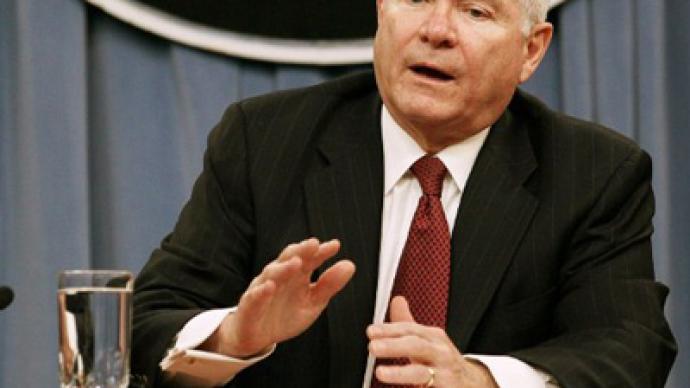For almost five years Robert Gates has been the man at the helm of the US military. He is now retiring, leaving behind an ever-growing defense budget and the new way of waging war, which saves US soldiers at the expense of foreign civilians.
Gates was Secretary of Defense under two very different presidents. Obama was elected on a promise to end the wars of his predecessor George W. Bush, but America’s wars continued and one more was even added to the plate of inconclusive campaigns – Libya.“When administrations change between parties, there really isn’t a great change in the Pentagon,” says Mike Lofgren, former chief analyst for military spending on the Senate Budget Committee.Under Gates' watch, America’s annual defense spending approached a trillion dollars, rising at the pace of about five per cent a year. But statements from his office have often been contradictory.In a 2010 speech, Gates argued for cutting military spending, saying the 9/11 terrorist attack “opened a gusher of defense spending that nearly doubled the base budget over the decade… The gusher has been turned off and will stay off for a good period of time.”The US is supposed to leave Iraq by the end of the year. But it seems the deadline is not final. “He gives all kinds of contradictory statements. For instance not long ago he said that anyone who advises to put the US land army in the middle of an Asian conflict should have his head examined. Yet at the same time he’s done everything he can – he’s flown over several times to Baghdad to plead that Nouri al-Maliki’s government ‘please, please, let the US troops stay after the deadline at the end of this year,’” Lofgren said.The Pentagon says they expect the Iraqi government will ask them to stay beyond their scheduled December 31 departure date. But with the announced troop withdrawals from Iraq and Afghanistan, the US started actively waging a different kind of warfare, what they call an “intelligent war”. It is a war waged with drones, without sacrificing the lives of their soldiers in countries like Pakistan, Yemen, and Libya.Many say that is the main shift that happened in military operations under Robert Gates: a shift that some say can only lead to more destruction. While targeting terrorists, the US has been criticized for killing mostly civilians.“It’s making us less secure from the policy standpoint. We can’t intervene all over the world. It just fuels insurgency and fuels anti-Americanism,” Lofgren believes.Analysts say the deaths of thousands of civilians in Afghanistan are part of the reason why the US has failed to curb insurgency there.Now as the US is preparing to pull out a third of its troops by the end of next year, many Afghans fear that fewer troops will not mean fewer bombs dropped on their homes, as the US steps up aerial strikes in the region. The possibility of waging a war without having to justify the deaths of the American troops at home has become more palatable for the Pentagon. The CIA has been at the forefront of America’s undeclared wars. And with the new Secretary of Defense, Leon Panetta, who was the head of the CIA, that trend is unlikely to change.


